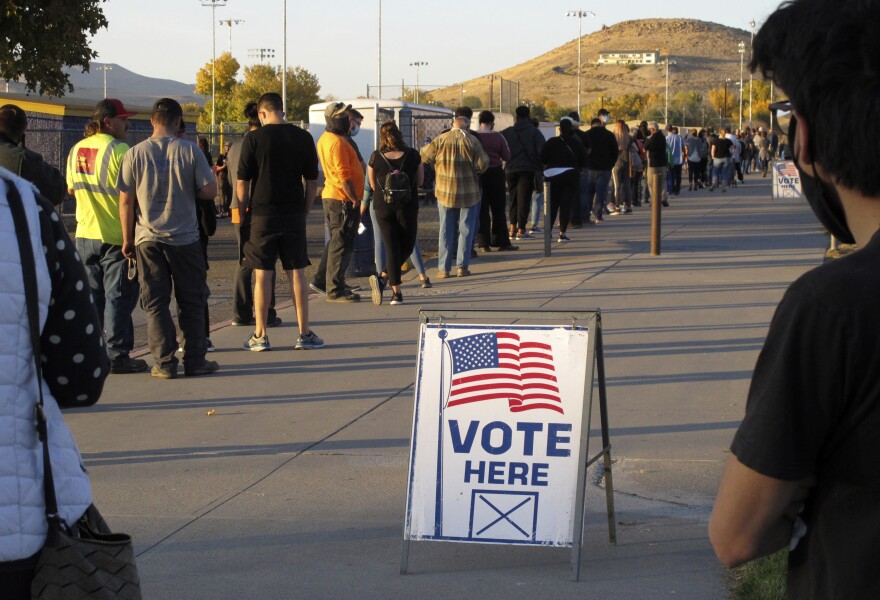Most people know at least one of the ballot questions voters will decide this fall, because it’s been something of a dividing line between Republicans and Democrats. It asks voters if they want to solidify abortion rights in the state Constitution.
But two lesser-known questions deal with archaic language, and offensive language, that remains in our state constitution.
The first one, Question 2, defines institutions that the state supports. This is what it says: “Institutions for the benefit of the insane, blind, deaf and dumb … shall be fostered and supported by the state.”
And Question 4 would remove slavery as punishment for crime from the Constitution. If passed this November, both become law.
Guests: David Orentlicher, law professor, UNLV and assemblyman, District 20; Chris Peterson, legal director, American Civil Liberties Union of Nevada










